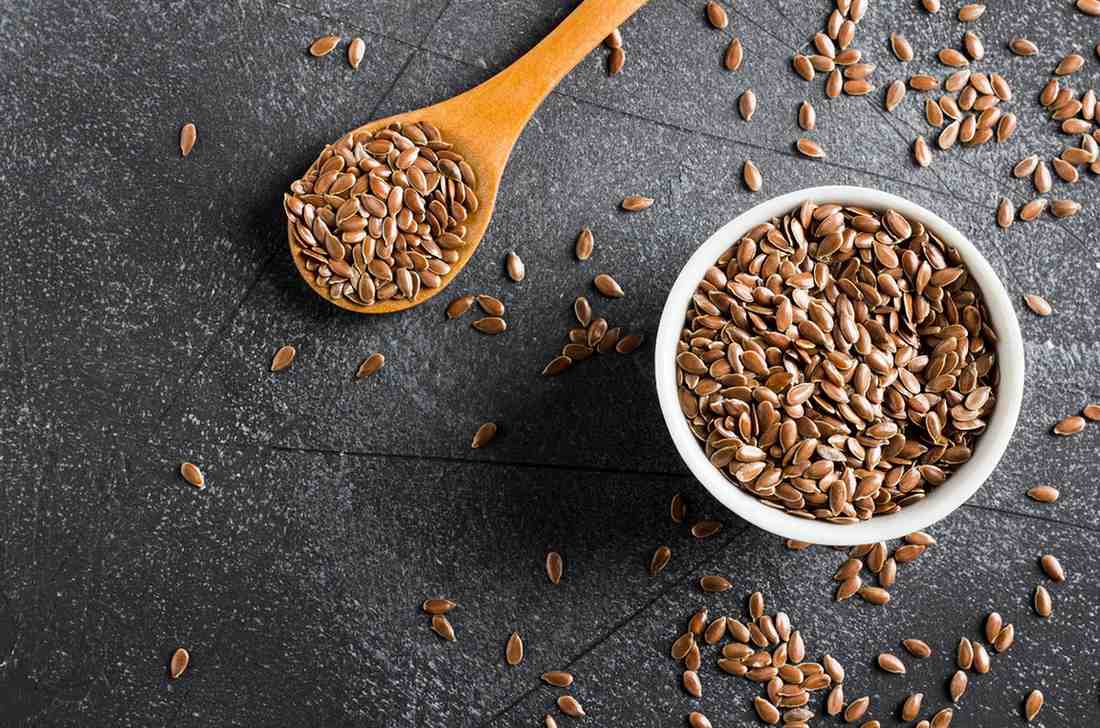Contents
5 Ways Flaxseeds Boost Your Bladder Health Naturally
Did you know that a tiny seed could make a big difference for your bladder health? Flaxseeds, those small brown or golden nuggets, have been used for centuries not just as a food source but also for their medicinal properties. The more we learn about them, the more we realize how beneficial they can be. Whether you’re dealing with bladder issues or just looking to maintain good urinary health, incorporating flaxseeds into your diet might be a game changer.
1. Rich in Omega-3 Fatty Acids
Flaxseeds are a powerhouse of omega-3 fatty acids, particularly alpha-linolenic acid (ALA). These healthy fats help reduce inflammation throughout the body, including the bladder. Chronic inflammation is often at the root of many bladder issues, such as interstitial cystitis or urinary tract infections (UTIs).
A 2019 study published in the journal Nutrients highlights the anti-inflammatory effects of omega-3s, suggesting that they can help alleviate symptoms associated with bladder conditions. By reducing inflammation, flaxseeds may contribute to a calmer urinary tract environment, making them a smart addition to your diet.
Pros:
- Reduces inflammation
- Supports overall bladder health
Cons:
- Some people might experience digestive upset if they consume too many too quickly.
2. High Fiber Content
Let’s talk fiber. Flaxseeds are packed with soluble fiber, which is crucial for maintaining healthy digestion. But how does that relate to your bladder? Well, a healthy digestive system can help prevent constipation, which can put extra pressure on the bladder and lead to discomfort or urgency.
Moreover, fiber can help maintain a healthy weight. Excess body weight can increase pressure on the bladder, leading to conditions like urinary incontinence. A study published in the American Journal of Clinical Nutrition found that higher fiber intake was associated with a lower risk of developing bladder problems. So, by adding flaxseeds to your meals, you might be doing your bladder a favor while also keeping your digestive track running smoothly!
Pros:
- Aids digestion
- Reduces pressure on the bladder
Cons:
- Too much fiber at once can lead to bloating or gas.
3. Contains Antioxidants
Flaxseeds are rich in lignans, a type of antioxidant that helps combat oxidative stress in the body. Oxidative stress has been linked to numerous health issues, including bladder diseases. Antioxidants can help protect your cells from damage, potentially lowering the risk of developing bladder-related conditions.
Research published in the Journal of Nutrition found that lignans have protective effects against certain cancers, including bladder cancer. While more research is needed, the antioxidant properties of flaxseeds suggest they might offer some level of protection for your bladder health.
Pros:
- Fights oxidative stress
- May lower the risk of certain cancers
Cons:
- The extent of the protective effect is still being studied.
4. Helps Hydration
Flaxseeds can also play a role in maintaining proper hydration, which is essential for bladder health. When your body is well-hydrated, urine becomes more diluted, reducing the chances of irritation in the bladder. Proper hydration can also help flush out bacteria, decreasing the risk of urinary tract infections.
Incorporating flaxseeds into smoothies or overnight oats can be a delicious way to boost your water intake. But remember, hydration isn’t just about drinking water; it’s about including hydrating foods in your diet too!
Pros:
- Promotes hydration
- May help prevent UTIs
Cons:
- Over-reliance on flaxseeds for hydration could lead to neglecting water intake.
5. Balances Hormones
Flaxseeds have been known to exert mild estrogenic effects due to the lignans they contain. Hormonal imbalances can sometimes contribute to bladder issues, especially in women during menopause. By helping to balance hormones, flaxseeds could potentially ease some of the urinary symptoms associated with hormonal changes.
A study published in Menopause found that postmenopausal women who incorporated flaxseed into their diets reported improved urinary function. It’s a fascinating area of research, and while more studies are needed, it suggests that flaxseeds might provide a natural option for managing bladder health in women.
Pros:
- May help with hormonal balance
- Potentially eases urinary symptoms in postmenopausal women
Cons:
- Individual results may vary; not a one-size-fits-all solution.
FAQs
Q: How should I consume flaxseeds for bladder health?
A: You can add ground flaxseeds to smoothies, oatmeal, yogurt, or baked goods. Ground seeds are easier for your body to digest, enhancing nutrient absorption.
Q: Are there any side effects of eating flaxseeds?
A: While flaxseeds are generally safe, consuming too much can lead to digestive issues like gas or bloating. Start with one or two tablespoons a day and see how your body reacts.
Q: Can flaxseeds replace medication for bladder issues?
A: No, flaxseeds should not replace prescribed medications. They can complement a healthy lifestyle but always consult your healthcare provider for medical advice.
Q: How long does it take to see benefits from flaxseeds?
A: Benefits can vary from person to person. Some may notice changes in digestion or bladder health within a few weeks, while others may take longer.
Conclusion
Flaxseeds are like little nuggets of health packed with a multitude of benefits for bladder health. From reducing inflammation and providing essential fiber to balancing hormones, these tiny seeds can play a crucial role in maintaining urinary health. However, they’re not a magic bullet. Always approach any dietary change with caution and consult with a healthcare professional to ensure it fits your individual health needs.
So, the next time you’re at the grocery store, don’t overlook these little seeds. They might just be the natural boost your bladder has been waiting for. Remember, a healthy bladder contributes to overall well-being, and when it comes to health, every little bit helps!
This article is for educational purposes only and is not a substitute for professional medical advice. Always consult a qualified healthcare provider before making changes to your health routine.
References
- Bistrian, B. R. (2019). Omega-3 Fatty Acids: Health Benefits and Recommendations. Nutrients, 11(1), 52. https://www.mdpi.com/2072-6643/11/1/52
- Slavin, J. L. (2013). Fiber and Prebiotics: Mechanisms and Health Benefits. Nutrients, 5(4), 1417-1435. https://www.mdpi.com/2072-6643/5/4/1417
- Messina, M. (2010). Insights Gained from 20 Years of Soy Research. The Journal of Nutrition, 140(12), 2289-2295. https://academic.oup.com/jn/article/140/12/2289/4571483
Get Your FREE Natural Health Guide!
Subscribe now and receive our exclusive ebook packed with natural health tips, practical wellness advice, and easy lifestyle changes, delivered straight to your inbox.





